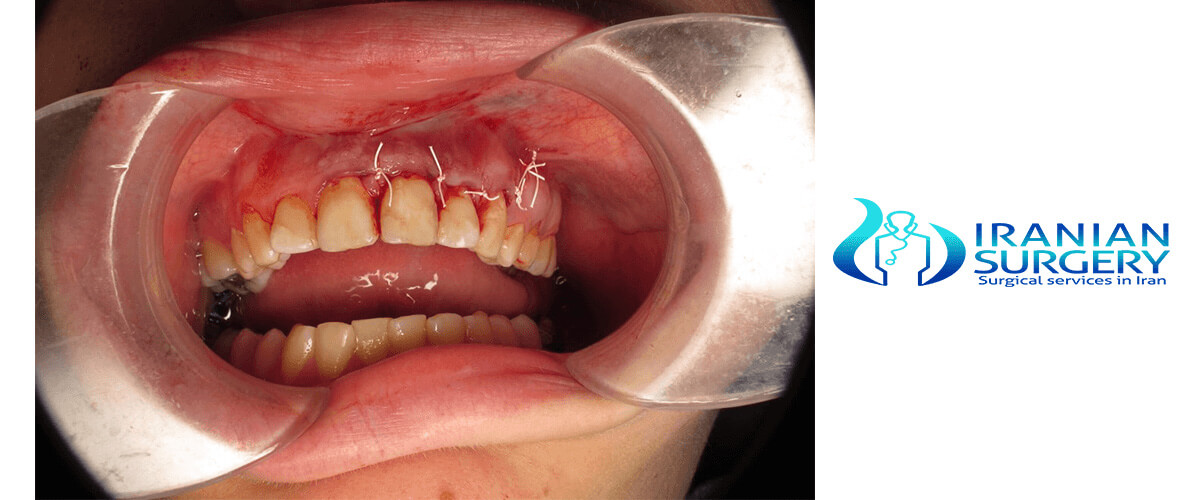Apicoectomy in Iran

Apicoectomy in Iran
When root canals fail, the only option you are left with is apicoectomy, which is expensive. We will help you find the right endodontist (not just a dentist) to get a successful apicoectomy at affordable rates.
An apicoectomy is a dental procedure that is required when a normal root canal treatment is unable to get rid of infected tissues in the root canal. When this happens, it can impede the healing process of the teeth or cause reinfection. During an Apicoectomy, the end of a root canal is sealed with a filing after the root tip (apex) and infected tissues are removed. Apicoectomy is also called an Endodontic Microsurgery since it is generally done using an operating microscope.
Often a root canal becomes infected again after a root canal treatment (RCT) as a result of some problem near the apex of the root. Dentists or endodontists usually recommend another RCT before opting for an apicoectomy. If your dentist can clear up the infection with a repeat root canal procedure, you don’t have to go for an apicoectomy.Thanks to new technology, improperly treated root canals can be easily identified today.
Note that an apicoectomy is not the first option to get rid of a root canal infection. At least one root canal treatment must have failed before your dentist should decide on an apicoectomy. People often confuse apicoectomy with root resection but it’s not same. In an apicoectomy, only the root tip or apex is removed but in a resection, an entire root is removed, not just the tip.
Who is eligible for the treatment?
This procedure involves an incision on your gum of the affected tooth while you are on anesthesia. You will be awake during this procedure but the anesthesia will keep you from feeling anything. The tip of the tooth or the apex of the tooth is sealed with a medicinal cement to stop the infection to spread or grow from the affected tooth. This procedure hardly takes about 30 to 50 minutes and the procedure time also depends on the number of roots that needs to be fixed. This procedure of apicoectomy is known to be fastest on the front teeth and the teeth which lie at the back or lower of the jaw, take a longer time to complete. The medicinal cements are non toxic and non carcinogenic which have a stable moisture content suited for your tooth and they are easy to handle. The cements need to provide a good seal otherwise there might be a possibility of leakage which will lead to further infections. However, you might face certain discomfort, pain and swelling after the surgery and there are medications that help you to heal from the incision.
Who is not eligible for the treatment?
You are eligible for the treatment of apicoectomy only if you have had a root end surgery in the past which could not cure the infections associated with it.
Are there any side effects?
If you did not have any root end surgery in the past then you are not eligible for this treatment.
What are the post-treatment guidelines?
The side effects of this procedure are common to that of any tooth surgery. You might face some swelling and pain in your gums and for a temporary period you need to be on a liquid diet.
How long does it take to recover?
A soft diet or liquid diet is recommended for 2 days after the procedure. You need to apply some ice on the affected tooth/ teeth for about 12 hours after the procedure. There is a possibility of swelling, therefore you should not rinse or brush your teeth too vigorously that can cause bleeding. It is highly recommended that you avoid smoking for a couple of weeks and the pain and irritation associated with the teeth are usually gone within 2 weeks.
What is the price of the treatment in Iran?
The pain and the irritation associated with your affected tooth/ teeth goes away within 2 weeks and it is fairly easy to recover from this surgery. However, there is a possibility that the affected tooth might cause problems in that case you should seek medical help as soon as possible.
What are the alternatives to the treatment?
The results of the treatment are known to be permanent and the individuals who have undergone this procedure find it very easy to recover from the surgery and with a little care of your teeth, there are no further signs of the infections associated with it.
[kkstarratings]


